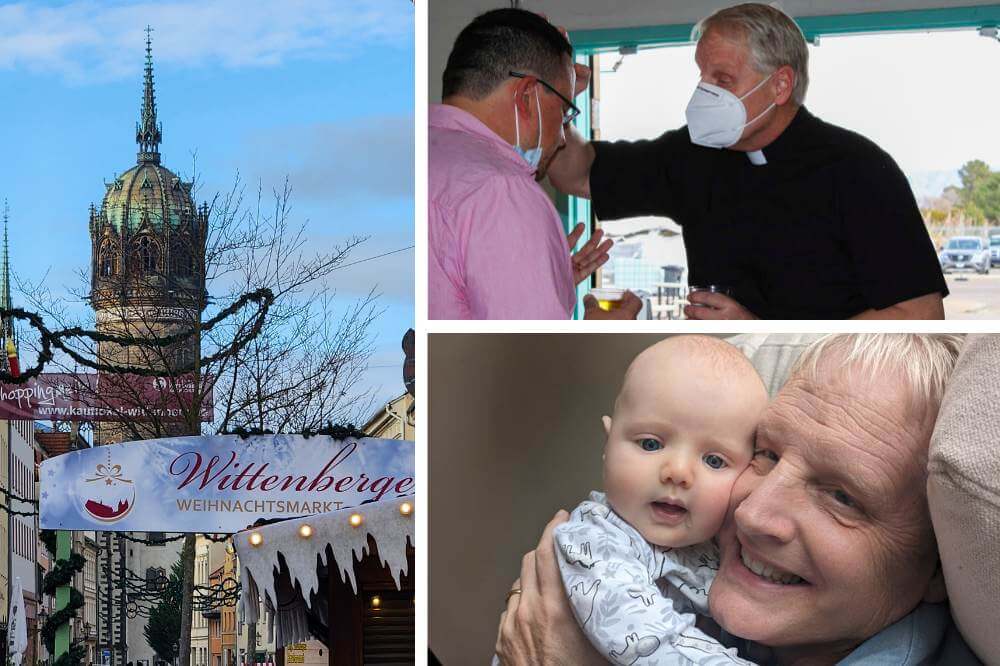Some of the most amusing moments of my ministry have occurred while interviewing others to work in the various congregations I have served. “So what interests you in this Administrative Assistant position at our church?” I asked a candidate in Boone. “Well,” she replied, “I’ve worked in a law office for several years now, and I’m honestly just sick and tired of how people can treat each other so terribly, so when I saw this position advertised, I thought, ‘Wow, wouldn’t it be great to work in a place where everybody always gets along for a change!’” Her assumption seemed to be the rule rather than the exception. Church people always love one another, and therefore they never behave in anything other than a loving way.
She should have read St. Augustine’s daily prayer for the late 4th/early 5th century when he served as Bishop of Hippo in northern Africa. “…Lord, save us from the forces of evil and from all these Christians.” Apparently, the 5th-century job description or practical reality for bishops was similar to that of the 21st. Manage conflict. Apparently, given St. Paul’s 1st-century words to the church in Corinth, even the very earliest days of the church were rife with conflict. Heck, why was he in Corinth to begin with? Because he and Peter didn’t get along back in Jerusalem! Jesus himself anticipated conflict in the Christian community and how to address it in Matthew 18. Anyhow, Paul urges Corinthians to stop their squabbling by focusing not on a convergence of opinion but on their common baptism into Christ.
Now I appeal to you, brothers and sisters, by the name of our Lord Jesus Christ, that all of you be in agreement and that there be no divisions among you, but that you be united in the same mind and the same purpose. For it has been reported to me by Chloe’s people that there are quarrels among you, my brothers and sisters. What I mean is that each of you says, “I belong to Paul,” or “I belong to Apollos,” or “I belong to Cephas,” or “I belong to Christ.” Has Christ been divided? (1 Corinthians 1:10-13)
The problem with the Church is the same as the problem with Communism, or Capitalism, or the Republican Party or the Democratic Party, or with the 4th, 12th, or 18th century, or the Royal Order of Buffalo: there are people in them! People are selfish, sinful, broken. Conflict happens, inevitably.
In counseling with couples preparing for marriage, we talk about the church in Corinth. Well, maybe not explicitly, but I always remind them that the fact that Jane loves Joe or Joe loves Jane or even the sum total of those loves won’t sustain them over the long haul. There must be something bigger than Joe’s love, bigger than Jane’s love, at the center of this relationship, which is why we pray fervently for and focus mightily on Christ’s presence at the center of that relationship binding them together in communication, sacrifice, commitment, and forgiveness.
Christians do not—and have not from the get-go—based their unity on shared preference, politics, or opinion. As different as we might be, what binds us is that somehow we are caught up in the story of Jesus and its promise and claim on our lives. So long as there are people in the church, which at the end of the day and even for all the challenge of it I greatly prefer, there will be divisions, hurt feelings, differences of opinion, and conflict along with all the positives of human community. Christ at the center, Christ as the lens through which we interpret everything, Christ as the peace we share before communion, will always be the tie that binds. May we always start and, when we stray, return there!
Walking with you,





